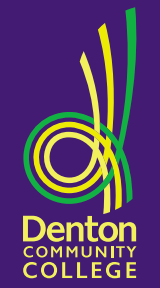Design and technology is part of everyday life and is constantly evolving. The GCSE focuses on developing practical skills within a particular material area, allowing students to manufacture high quality outcomes. They’ll learn about commercial processes and careers in related industries, as well as developing core transferable skills, such as collaboration and communication.
Product Design GCSE
Graded 1-9
The new GCSE places greater emphasis on understanding and applying iterative design processes. Students will use their creativity and imagination to design and make prototypes that solve real and relevant problems, considering their own and others’ needs, wants and values.
Year 10, students will specialise in a particular material area with a deeper focus into both the theory and practical side of their chosen area. This will include a mixture of focused practical tasks, theory lessons and making activities.
Year 11, students will complete a major project, consisting of a design folder and final product.
Assessment
Controlled Assessment (50% of the qualification, internally assessed, externally moderated) and a single written exam (50% of the qualification, externally assessed).
Art and Design (Textile Design)
The GCSE Art/Textiles course gives pupils the opportunity to be creative in their response to a given brief. The course allows them the freedom and independence to let their creative skills flourish. Pupils will learn how to present their work in a sketchbook. Pupils are also assessed on their research skills. In both units pupils will be asked to gain inspiration from the work of other artists and designers.
From the work they produce on paper, pupils will then develop these ideas onto fabric, using a wide variety of textiles techniques. Once a body of work has been produced and developed, pupils will then produce a final piece using fabric and the textiles skills they have learnt through the process.
The course also enables pupils to extend on their evaluation skills. Part of the course assessment is how pupils can evaluate their own and others work through annotation, forming an opinion, comparing and critical analysis.
Assessment
Coursework: 60 % of final mark Unit 1: Students will be asked to produce a portfolio of work developed from a theme. The portfolio will show a range mark making through textile techniques, such as weaving, surface printing (block, screen or digital), pattern making, pattern cutting, embroidery (machine or hand), knitting, batik, soft sculpture, appliqué, collage and fabric manipulation .
Final Exam: 40% of final mark Unit 2: Set Task THIS IS NOT A WRITTEN EXAM IT IS A PRACTICAL TASK
